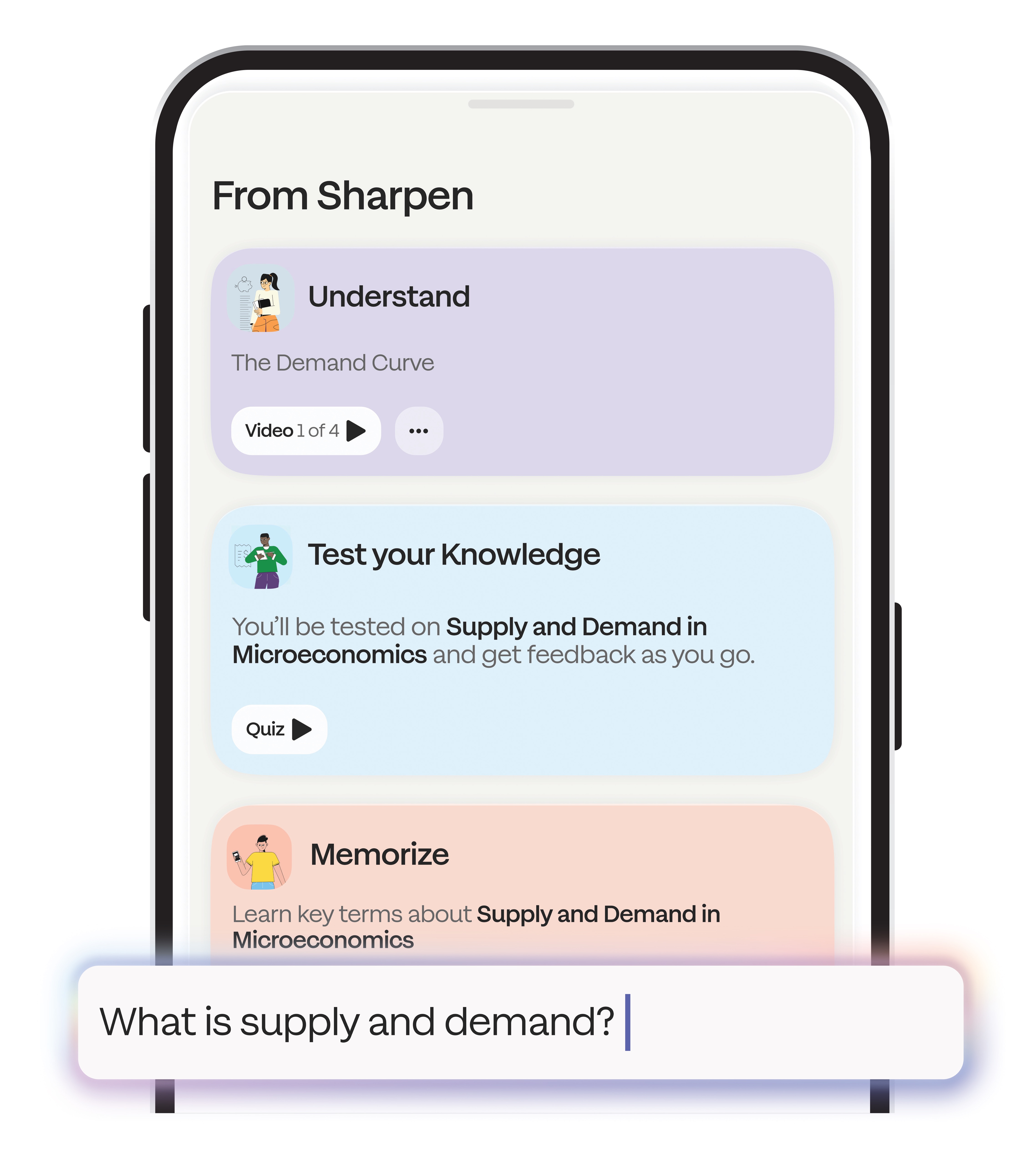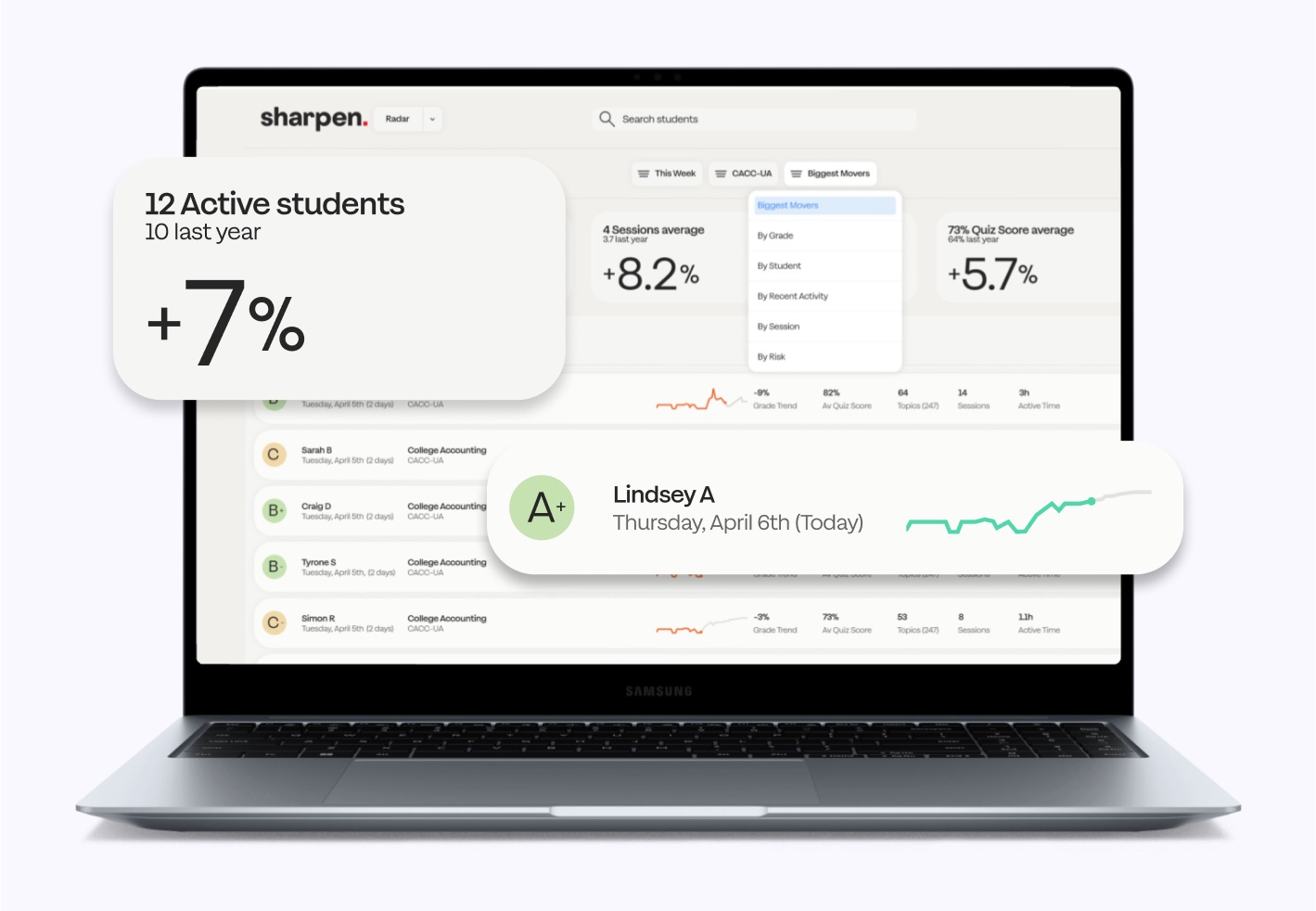The Pitfalls and Opportunities of Generative AI in Higher Education
Learn the pitfalls of generative AI in higher ed and discover a responsible AI solution that helps institutions maintain academic integrity and boost student outcomes.

Artificial intelligence has transformed the educational experience for higher ed students and educators everywhere. Rather than scouring library shelves for relevant information or digging through online databases for reputable sources, students increasingly use AI tools to support their learning. Faculty rely more heavily on AI to enhance their roles as facilitators, mentors, and guides. At the same time, 57% of colleges and universities have made AI a strategic priority, up from 49% in the previous year.1
Although these technologies can help meet the needs of students and educators in higher ed, they also present serious risks to academic integrity and create challenges for students, administrators, and faculty, including introducing unverified content and hallucinations and the potential for plagiarism. This has left universities and colleges unsure of how to balance AI’s ethical concerns in classrooms with its benefits on student outcomes.
"Our students drastically struggle with understanding how to use AI. They're giving book reports via AI."
- Dean of the Business School, Idaho State University
And yet, approximately 80% of higher ed professionals and students use generative AI today,2 proving that these tools are already redefining what academic integrity means. When instructors use AI to create and grade assessments and students use it to complete them and prepare, it leads to a dangerous loop that could have harmful effects on education as we’ve always known it.
Here, we’ll discuss the pitfalls of using AI in higher education and how colleges and universities can responsibly integrate it into their institution.
The Dangers of Unverified Content
Students spend five hours per week searching for supplemental learning resources—and 86% turn to unvetted AI tools to support their efforts.3
While AI can be a powerful thought partner for brainstorming, drafting, summarizing, and explaining concepts, the most immediate concern about open AI platforms like ChatGPT is the issue of unverified content. These models are trained on broad information datasets, but they fail to distinguish fact from fiction. In fact, open AI platforms have a well-documented tendency to hallucinate, which means they often present false or misleading information as accurate data.
A single AI hallucination can be the difference between a pass or a fail for a student using AI to cram for a final exam. For a college or university, this reality threatens the quality of education and the credibility of student work. However, when an AI tool is designed specifically for higher ed, it draws from a trusted library of resources to provide verified answers and study activities that support learning objectives.
The Lack of a Structured Learning Experience
Beyond the risks of misinformation and plagiarism, open AI platforms lack a pedagogical structure. They provide answers in a vacuum without considering a student’s specific coursework, learning gaps, or institutional resources. Students can use AI to find an answer to a prompt in seconds, but they won’t get a reliable path to understanding and applying the knowledge they receive. This unguided experience can lead to a surface-level understanding of a topic, but leaves students woefully unprepared for the critical thinking and application that is expected and required in higher ed.
All of these current pitfalls present a powerful opportunity for AI learning solutions that are built specifically for colleges and universities. This inspired the experts at McGraw Hill to create Sharpen™ Advantage, a responsible, AI-enabled study app that empowers students, faculty, and institutions to embrace verified, reliable solutions that drive academic success for all.

Solutions like Sharpen Advantage create a more flexible learning environment to drive meaningful engagements and conceptual understanding of course content, not just rote memorization. Designed to facilitate active learning, these educational AI features offer students the flexibility to dive deeper into course content and check their knowledge with personalized quizzes to see if they’re grasping core concepts.
Lack of Feedback Loop for Institutions
When students fall behind in a course or struggle to grasp concepts, institutions face challenges in identifying these at-risk students because they don’t have tools to monitor student progress in real time, especially when they use AI solutions like ChatGPT. Without these insights, instructors cannot identify, intervene early, and provide personalized guidance to address their students' individual needs before their exams. In a recent study, 69% of institutions said they lack real-time performance insights,4 making the need for new solutions more critical than ever.
However, with academic AI applications like Sharpen Advantage, instructors and administrators can gain real-time, actionable insights into student performance without having to wait for their students to complete high-stakes assessments. Sharpen is designed for practice and study rather than graded work, which allows educators to monitor student progress and identify knowledge gaps. This enables them to offer tailored support and proactive intervention before assignments or exams, directly and positively impacting grades, DFW rates, and retention.

Academic Integrity and the Risk of Plagiarism
When students use AI to complete assignments, the line between enhancing their learning with technology and outright plagiarism becomes blurred. Without a responsible AI policy for how and when to implement these solutions, students may bypass the critical thinking required to produce original work, leading to a decline in writing and research skill development.
That said, it’s clear that AI in higher ed is here to stay—so the question is no longer whether to use it but how to ensure it is used safely, responsibly, and effectively. The responsibility is now on institutions to provide trusted AI solutions for students that actively support and challenge them, while upholding academic standards.
The Responsible AI Solution That Institutions Value, Educators Trust, and Students Love
The challenge for institutions is not to limit or prevent the usage of AI, but to provide an ethical and safe way for students to use AI in higher education. McGraw Hill built Sharpen Advantage based on its core principles: the responsible use of data, technology that drives meaningful outcomes for educators and learners, and the highest level of oversight and accountability. With its verified resources, structured format, and actionable data, Sharpen Advantage provides a trusted solution that equips students with a powerful AI study partner and empowers institutions with real-time insights to help them achieve better student outcomes.
Learn more about how Sharpen Advantage can benefit your institution.
- Anara, Workday, EDUCAUSE, and Explorance
- Tyton Partners, Time for Class Survey, March 2025
- Digital Education Council, Global AI Student Survey: 3,839 Undergraduates and Graduates, August 2024
- McGraw Hill Research, Sharpen-Enterprise Interviews, February 2025


